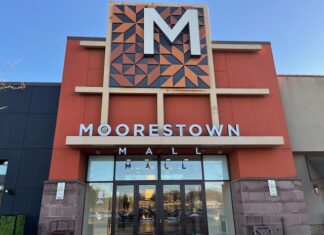
In celebration of Martin Luther King Jr. Day weekend, the Preserving Black Haddonfield History Project – a subcommittee of the Haddonfield Alumni Society – the Haddonfield Library and Franklin Township author Ellen Alford teamed for a one-of-a-kind program honoring Black history in South Jersey.
The program featured a walking tour of areas historically significant to the Black community in Haddonfield and was followed by Alford’s talk at borough hall about her book, “Abolition and the Underground Railroad in South Jersey: Not Without a Fight.”
Alford said that her mom was also very interested in history, and that she impressed upon her children the importance of learning slavery’s background. It was when Alford attended Rutgers-Camden that she decided to focus on area history.
“I want people to understand that slavery did exist in New Jersey,” she noted. “That’s one of the things I found out, because I didn’t grow up hearing about slavery in New Jersey … We did have slavery here, even though it was abolished in the early 1800s, it was abolished gradually.”
Alford’s book – published in October – focuses on the Underground Railroad, not an actual railroad but a network of people and places established secretly to shelter escaped slaves. “Conductors” transported runaway slaves from place to place, and while some of them did come to New Jersey, the majority merely passed through the area on the way to more northern states or Canada.
Alford noted that one of the reasons some slaves didn’t stay in the state was the lack of protection against their kidnapping once they were free Black citizens.
“The state government was opposed to having runaway slaves here and they would say they allowed slave catchers – which were prevalent throughout a lot of states – (and) they were eager to let the slave catchers come and take runaways back to the slave states that they came from,” Alford explained. “The laws were very lax.”
Alford had been researching history for more than 15 years, and the most surprising thing she learned is that African American activist Harriet Tubman – one of the Underground Railroad’s conducters -was also active in New Jersey.
To anyone interested in further researching the slave network and its local roots, Alford recommends reading William Still’s “The Underground Railroad.” The author was a clerk for the Philadelphia Anti-Slavery Society and also a conductor. His book was published after the Civil War and examined how runaway slaves escaped, who was with them and where they were headed, acccording to Alford.
“It’s very hard to say one particular thing was more important than another, because everything was important,” she insisted. ” … Everyone contributes something, whether it’s a primary document or historian writing about someone. You pick up little pieces here and there and it helps you put the puzzle together.”
The Preserving Black Haddonfield History Project continues to create a record of Black history in Haddonfield through preserved narratives, a docuseries, historical markers around town and walking tours.
“Our motto is, we’re celebrating our commonalities and building a more harmonious community,” explained Adrienne Rhodes, co-founder of the project. “I think that message will come through with this programming.”
Preserving Black history has had a number of impacts on the borough community, including work with Haddonfield Memorial High School students to create intergenerational opportunities for bringing people together.
“(Learning about Black history) helps create a certain understanding about our origin story,” Rhodes pointed out. “The perception of ‘second class’ or ‘less than’ should be no more when folks understand the length and depth of our experience.”
For more information on preserving Black history, visit the Haddonfield Public Library website.









